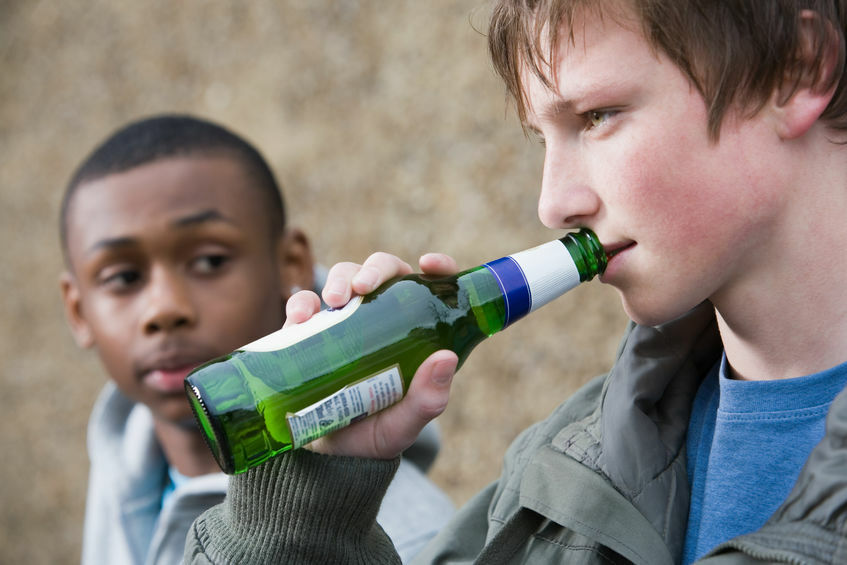Drinking alcohol is a large part of American culture and has been socially acceptable throughout history and into the modern day. Despite this however, there are aspects of the activity that can negatively affect those who drink, and as such, lawmakers in the US and internationally decided that anyone handling the effects of alcohol needed a certain level of maturity in order to conduct themselves safely and act appropriately while under the influence.
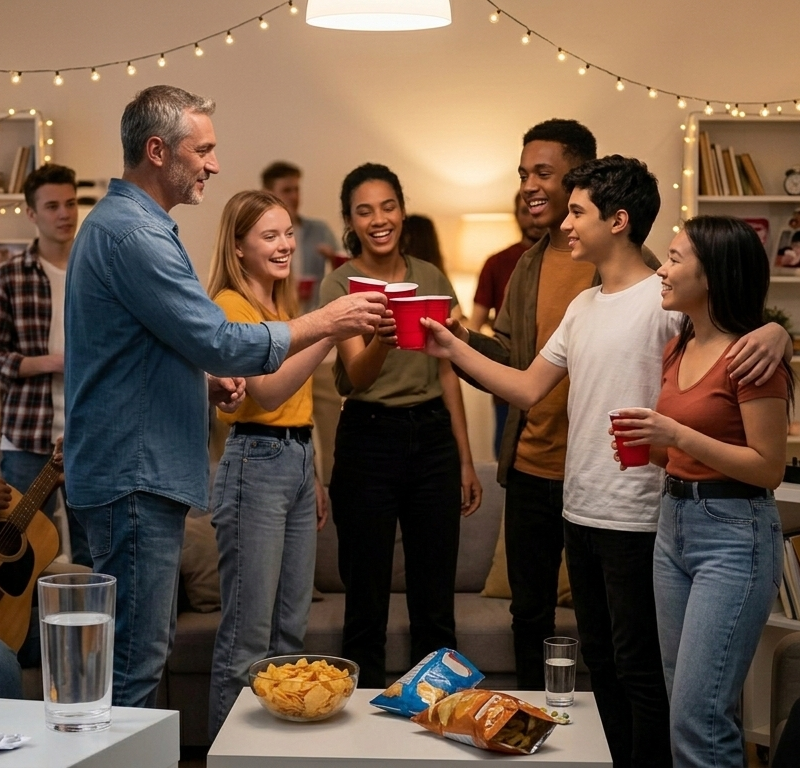 However, for as long as drinking age laws have been in place, there have also been a select group of people who partake in alcohol underage.
However, for as long as drinking age laws have been in place, there have also been a select group of people who partake in alcohol underage.
Underage drinking is more widespread than many people would expect, with a majority of teenagers having tried alcohol before they were of legal drinking age.
The problem with underage drinking is that the risk of alcohol abuse is increased significantly, due to the under development of a young person’s decision-making abilities. This in turn leads to increased cases of binge drinking, alcohol poisoning and substance abuse in these groups of people.
Through consistent legislation, awareness campaigns and general societal awareness, the risks of underage drinking are made relatively clear to those at risk. However, the practice continues in force, with people drinking at a young age despite the possible risks. So, if they know the risk factors, why do teens drink alcohol?
What Does Alcohol Do To The Teen Body?
Before we get into the why, it’s first important to have an accurate understanding of what effect drinking actually has on a teen’s body. Alcohol is a depressant, which means it slows the function of the central nervous system and blocks some of the messages trying to get to the brain, altering a person’s perceptions, emotions, movement, vision, and hearing.
In very small amounts, alcohol can help a person feel more relaxed or less anxious. However, more alcohol causes greater changes in the brain, resulting in intoxication. People who are intoxicated may stagger, lose their coordination, slur their speech and will probably be confused and disoriented.
Depending on the person, intoxication can make someone very friendly and talkative or very aggressive and angry. Simultaneously, reaction times are slowed dramatically — which is why people are told not to drink and drive. This remains true for teens as well, even more so in fact, as their lack of experience driving will only be made worse by intoxication.
 However, binge drinking, popular among teens, is when large amounts of alcohol are consumed in a short period of time, which can cause alcohol poisoning. Alcohol poisoning is exactly what it sounds like — the body becomes poisoned by large amounts of alcohol, the first symptom of which usually being violent vomiting. After this stage, extreme sleepiness, unconsciousness, difficulty breathing, dangerously low blood sugars, dehydration, seizures, and even death may occur if the teen or adult does not get appropriate treatment in time.
However, binge drinking, popular among teens, is when large amounts of alcohol are consumed in a short period of time, which can cause alcohol poisoning. Alcohol poisoning is exactly what it sounds like — the body becomes poisoned by large amounts of alcohol, the first symptom of which usually being violent vomiting. After this stage, extreme sleepiness, unconsciousness, difficulty breathing, dangerously low blood sugars, dehydration, seizures, and even death may occur if the teen or adult does not get appropriate treatment in time.
This is one of the greatest dangers of underage drinking as teens rarely know their limits and have little to no experience in dealing with intoxicated or even poisoned individuals. So, with such real and harsh risk factors associated with teen drinking, why does the practice persist?
So Why Do Teens Drink Alcohol?
Peer Pressure
One of the biggest factors that influence teen drinking is social pressure from friends and classmates, known simply as peer pressure. As everyone knows, the teenage years are difficult for almost everyone and it’s not hard to see why. Between dealing with puberty, navigating friendship groups, discovering interests and making time for school, jobs, and life, almost all teens want to fit in, and to feel like they belong somewhere.
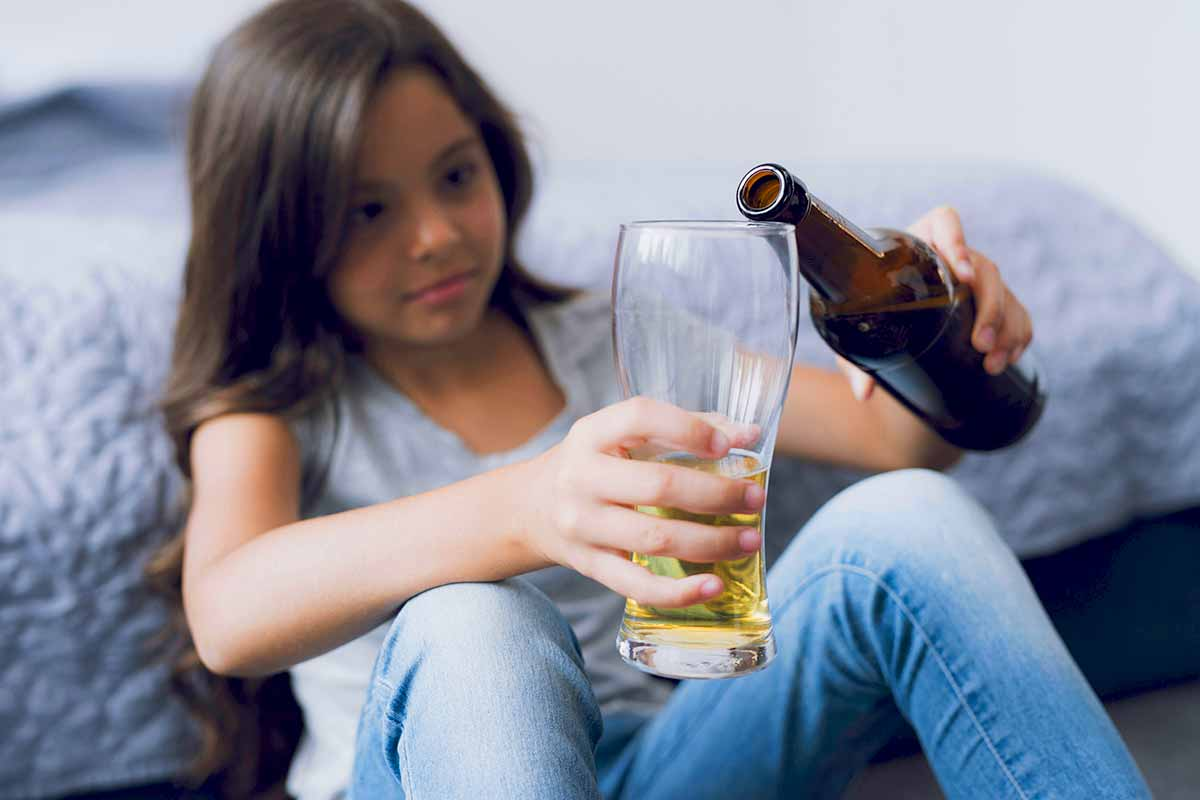 However, this desire to fit in can push teens to make bad choices, as the urge to be belong with their peers can often override their desire to be safe and make smart decisions. As such, peer pressure becomes one of the biggest reasons why teens choose to drink alcohol. Whether it be at parties, at sleepovers or even at just casual hangouts with a couple of friends, some teens find it very difficult to say no to alcohol.
However, this desire to fit in can push teens to make bad choices, as the urge to be belong with their peers can often override their desire to be safe and make smart decisions. As such, peer pressure becomes one of the biggest reasons why teens choose to drink alcohol. Whether it be at parties, at sleepovers or even at just casual hangouts with a couple of friends, some teens find it very difficult to say no to alcohol.
This can be for a multitude of reasons, but more often than not, it hinges upon the idea that refusing a drink as a teen could make them look uptight or jeopardize their place in the group. This risk to a teenager can seem much more real than the risks they may have heard about when underage drinking.
“Some teens find it very difficult to say no to alcohol in social settings.”
Teens Want to Feel Grown-Up
However, peer pressure might only be one facet of the equation as to why a teen decides to start drinking alcohol. Another possible explanation is that some teens wish to be viewed and treated as adults and begin drinking alcohol to establish this view. By the time most kids are sophomores in high school, they can be physically as big as most adults. They might be driving, working a part-time job, and have more responsibilities at home, like looking after a younger sibling, and so since they’re living and maturing like adults, then they can be understandably eager to be treated like one.
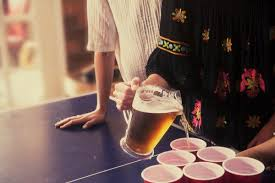 This can be made more of an issue depending on how a teen understands the relationship between alcohol and adulthood. If a child or teen sees their parents drink every night and exposed to a normalized and glorified image of drinking in the media, then it’s more likely that they will view drinking as an everyday part of adulthood, with little to no negative consequences.
This can be made more of an issue depending on how a teen understands the relationship between alcohol and adulthood. If a child or teen sees their parents drink every night and exposed to a normalized and glorified image of drinking in the media, then it’s more likely that they will view drinking as an everyday part of adulthood, with little to no negative consequences.
What teens don’t understand however is that while they may appear grown-up and feel like an adult, their brain chemistry might be relatively far behind their view of themselves. It’s a well-known fact that the brain is still developing until the age of 25.
Which means alcohol affects the teenage brain differently than it does the adult brain, affecting judgment, impulse control, memory, and more.
What’s worse is that alcohol can cause serious and permanent damage to the adolescent brain’s development and chemistry, making teen drinking an all-around bad idea that can influence a teen’s long terms health.
Teens See Parents Drinking at Home
 As previously mentioned, parents drinking at home can influence a teen’s attitude towards alcohol in both a positive and negative way. Responsible behavior around alcohol can set a good example for children and teens so that when young adults turn 21 and can legally choose to have a drink, they know what responsible behavior looks like and can have a positive relationship with alcohol.
As previously mentioned, parents drinking at home can influence a teen’s attitude towards alcohol in both a positive and negative way. Responsible behavior around alcohol can set a good example for children and teens so that when young adults turn 21 and can legally choose to have a drink, they know what responsible behavior looks like and can have a positive relationship with alcohol.
However, the same can be said for the creation of a negative relationship with the substance for a teen or a child, if it’s made to think that binge drinking, alcohol abuse and general unsafe practices are normal.
Then there is a real risk that once they have access to alcohol, they will treat it in the same manner that they have seen their parents treat it, resulting in a perpetuated dangerous relationship with the substance.
As such, it is important to set a positive example when it comes to alcohol. A significant element when it comes to having alcohol in your home, is the responsibility of reducing teen temptation and access. First, set a clear zero-tolerance policy for underage drinking in your family, and ensure you keep tabs on what alcoholic beverages are in your home. Are cans of beer missing from the refrigerator in the garage? Did a bottle of vodka that you rarely drink go missing from the top shelf of the pantry? Are bottles of alcohol at the same level you left them? All parents want to trust their kids, but you can help them make good choices by eliminating temptation and reinforcing good behavior.
“Responsible behavior around alcohol can set a good example for children and teens.”
Should You Allow Your Teen To Drink?
Despite it being illegal to buy alcohol in the United States until the age of 21, the majority of teens do have access to it through one method or another. As such, it’s a parent’s responsibility to make a decision around whether and when they will allow their teens to drink.
Before making any decision however, it is important to fully understand the scope and consequences that come with underage drinking:
Underage Drinking Is A Punishable Crime
Teens who drink put themselves at risk for obvious problems with the law, as if they get caught drinking underage, they will be open to criminal charges. Additionally, teens who drink have their decision-making ability impaired and as such could be convinced to commit other crimes, get into fights, or partake in worse illegal substances.
“People who continue drinking heavily well into adulthood risk damaging their organs.”
Drinking Can Put Teens Into Uncomfortable Situations
Slightly less severe than the previous consequence, but just as negative for teens, underage drinking can put teenagers in very uncomfortable situations. Whether it be throwing up on themselves, looking like a mess or in worse scenarios, doing things that might ruin their reputation, there are a wide variety of social risks that come with drinking underage.
Drinking Can Harm Teens Physically
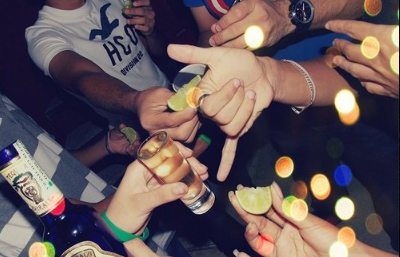 It’s a well-known fact that drinking is not by any means good for your health.
It’s a well-known fact that drinking is not by any means good for your health.
One study by the University of Washington found that people who regularly had five or more drinks in a row starting at age 13 were much more likely to be overweight or have high blood pressure by age 24 than their non-drinking peers. People who continue drinking heavily well into adulthood risk damaging their organs, such as the liver, heart, and brain.
On top of this, the risk of injuring yourself, maybe even fatally, is higher when you’re under the influence, too. One half of all drowning deaths in teenage males are related to alcohol use. This use of alcohol also greatly increases the chance that a teen will be involved in a car crash, homicide, or suicide.
“If you have a friend whose drinking concerns you, make sure he or she stays safe.”
How To Avoid Drinking As A Teen
It can be very difficult to avoid alcohol as a teen, especially if it’s a large part of your social circle’s activities. If all your friends drink and you don’t want to, it can still be hard to say no as no one wants to risk feeling rejected or left out. However, there are still effective strategies that can help you overcome this.
For example, some people find it helps to say no without giving an explanation, while others think offering their reasons works better. Such as “I’m not into drinking,” “I have a game tomorrow,” or simply “I’m not comfortable.” If your friends still pressure you to drink after you have declined, and given an explanation, it might be time for you to leave and reconsider why you want to be around these people in the first place. After all, no true friend would force someone into doing something if they weren’t comfortable with it.
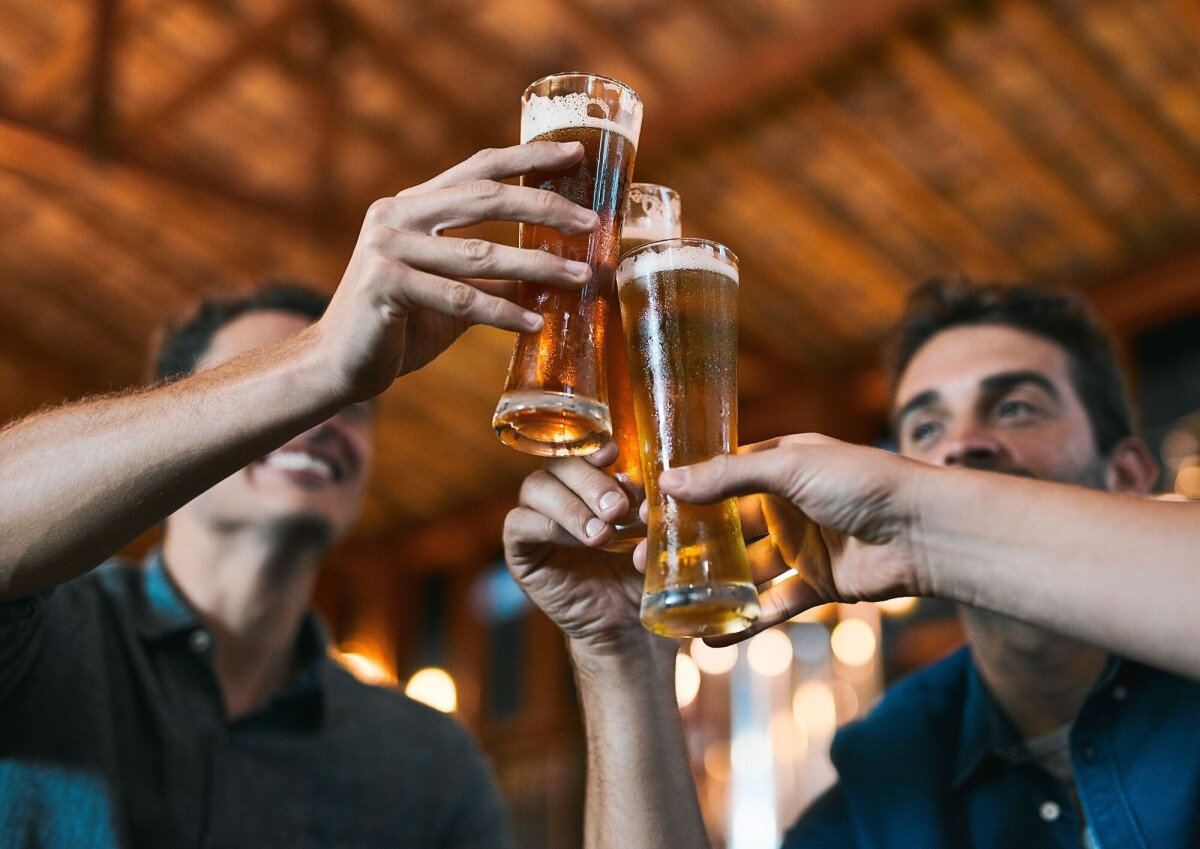 If you’re going to a party and you know there will be alcohol, a good idea is to plan your strategy in advance.
If you’re going to a party and you know there will be alcohol, a good idea is to plan your strategy in advance.
You and a friend can develop a signal for when it’s time to leave, or for when one of you needs help to get out of a pressured situation.
You can also make sure that you have plans to do something besides just hanging out in someone’s basement drinking beer all night.
Planning a trip to the movies can be enough of an excuse to get you out of drinking.
How To Help Teen Drinkers
Some teens may be able to drink safely and responsibly, other teenagers may just be out of control. Quickly developing a dependency on alcohol, known as alcoholism. Alcoholism is an illness that needs to be treated just like other illnesses. Keep in mind that people with drinking problems can’t stop drinking until they are ready to admit they have a problem and get help.
 If you want to help a teen drinker, get to this stage, you need to first broach the subject with them casually.
If you want to help a teen drinker, get to this stage, you need to first broach the subject with them casually.
If they agree to needing help, then you can go to a professional who can give them the care they need.
However, if you’re not concerned about someone being an alcoholic but are more concerned with their general safety, then there are more active steps you can take.
To begin with, if you have a friend whose drinking concerns you, make sure he or she stays safe. For example, don’t let your friend drink and drive and make them aware that you are concerned for their well-being by asking them to be safe.
If you can, try to keep friends who have been drinking from doing anything dangerous, such as trying to walk home at night alone or starting a fight. Remember, it’s also important to protect yourself, too. Don’t get in a car with someone who’s been drinking, even if that person is your ride home. Ask a sober adult to drive you instead or call a cab.
Now, while teen drinking may be negative; it doesn’t necessarily mean that those who partake should be looked at in a negative light. Everyone makes decisions about whether to drink and how much — even adults. It’s possible to enjoy a party or other event just as much, if not more so, when you don’t drink. However, some people still enjoy having some alcohol in their system at these times. This is their choice and as such it should be respected, just as much as someone’s choice to remain sober should be respected.
Call a treatment specialist today is you or anyone you know is struggling with Alcoholism on our 24/7 free call number 877 322 2694

